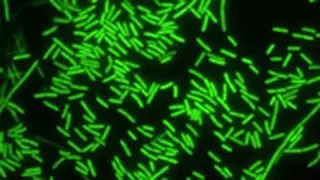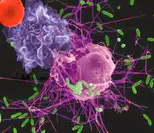Stanford University is ranked first in Neuroscience / Neurobiology and University of California-San Diego is placed in second.
Neuroscience or Neurobiology is the scientific study of the nervous system. Traditionally, neuroscience has been seen as a branch of biology. However, it is currently an interdisciplinary science that collaborates with other fields such as chemistry, computer science, engineering, linguistics, mathematics, medicine and allied disciplines, philosophy, physics, and psychology. It also exerts influence on other fields, such as neuroeducation and neurolaw. The term neurobiology is usually used interchangeably with the term neuroscience, although the former refers specifically to the biology of the nervous system, whereas the latter refers to the entire science of the nervous system.(read more at wiki)
Academic Factors Comparison Between Best Colleges in Neuroscience / Neurobiology Major
2 public and 6 private schools are ranked in the top 10 Neuroscience / Neurobiology colleges. The average acceptance ratio of the schools is 11.71% where Stanford University has the tightest acceptance ratio of 5% and University of California-San Diego has the highest ratio of 36%. Total 152,121 students are enrolled into best Neuroscience / Neurobiology schools where University of California-San Diego has the largest population with 34,979 students and California Institute of Technology has the smallest with 2,240 students. The average graduation rate is 93.00% and the average students to faculty ratio is 8.29:1 at those colleges.
Next table shows the academic information and key facts of the best Neuroscience / Neurobiology colleges including acceptance ratio, graduation rates, student population, and students to faculty ratio.| Rank | Name | Acceptance Rates | Graduation Rates | Population | Student-Faculty Ratio |
|---|---|---|---|---|---|
| 1 | Stanford University Stanford, CA | 5% | 94% | 17,184 | 10:1 (10.00 %) |
| 2 | University of California-San Diego La Jolla, CA | 36% | 87% | 34,979 | 19:1 (5.26 %) |
| 3 | California Institute of Technology Pasadena, CA | 8% | 94% | 2,240 | 3:1 (33.33 %) |
| 3 | Johns Hopkins University Baltimore, MD | 13% | 92% | 23,917 | 10:1 (10.00 %) |
| 5 | Harvard University Cambridge, MA | 5% | 97% | 29,908 | 7:1 (14.29 %) |
| 5 | Massachusetts Institute of Technology Cambridge, MA | 8% | 93% | 11,376 | 3:1 (33.33 %) |
| 5 | University of California-San Francisco San Francisco, CA | - | - | 3,145 | - |
| 8 | Columbia University in the City of New York New York, NY | 7% | 94% | 29,372 | 6:1 (16.67 %) |
| Average | 11.71% | 93.00% | 152,121 (Total) | 8.29:1 (12.07 %) |
Best Neuroscience / Neurobiology Colleges 2018 Tuition & Fees Comparison and 2019 Estimated Costs
Next table lists 2017-2018 tuition & fees and compares the costs between Best Neuroscience / Neurobiology Colleges. The 2017-2018 costs are officially published by IPEDS, U.S. Department of Education. The estimated costs for year 2018-2019 are calculated and estimated based on each school's tuition rates last year.
For the undergraduate programs, the average tuition & fees of best Neuroscience / Neurobiology schools is $49,968 where Columbia University in the City of New York has the most expensive costs with $57,208 and University of California-San Diego has the lowest amount of tuition with with $42,032. The average graduate tuition & fees of best Neuroscience / Neurobiology schools is $44,214 where Johns Hopkins University has the highest tuition with $54,050 and University of California-San Francisco has the lowest amount of tuition with with $27,944.
| Rank | School Name | 2018 Tuition & Fees | 2019 Estimated Tuition & Fees | ||
|---|---|---|---|---|---|
| In-State | Out-of-State | In-State | Out-of-State | ||
| 1 | Stanford University | $49,617 | $51,352 | ||
| 2 | University of California-San Diego | $14,018 | $42,032 | $14,401 | $43,809 |
| 3 | California Institute of Technology | $49,908 | $52,353 | ||
| 3 | Johns Hopkins University | $52,170 | $53,991 | ||
| 5 | Harvard University | $48,949 | $50,898 | ||
| 5 | Massachusetts Institute of Technology | $49,892 | $51,374 | ||
| 5 | University of California-San Francisco | - | - | - | - |
| 8 | Columbia University in the City of New York | $57,208 | $59,444 | ||
| Average | $14,018 | $49,968 | $14,401 | $51,889 | |
| Rank | School Name | 2018 Tuition & Fees | 2019 Estimated Tuition & Fees | ||
|---|---|---|---|---|---|
| In-State | Out-of-State | In-State | Out-of-State | ||
| 1 | Stanford University | $47,940 | $47,940 | ||
| 2 | University of California-San Diego | $13,085 | $28,187 | $13,085 | $28,187 |
| 3 | California Institute of Technology | $49,785 | $52,233 | ||
| 3 | Johns Hopkins University | $54,050 | $55,954 | ||
| 5 | Harvard University | $45,958 | $47,587 | ||
| 5 | Massachusetts Institute of Technology | $52,892 | $54,588 | ||
| 5 | University of California-San Francisco | $12,842 | $27,944 | $13,187 | $28,284 |
| 8 | Columbia University in the City of New York | $46,956 | $48,401 | ||
| Average | $12,964 | $44,214 | $13,136 | $45,397 | |




